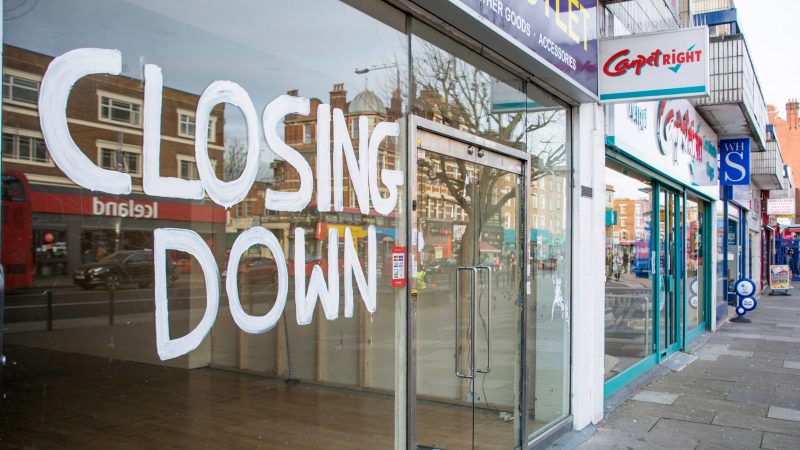
Labour analysis of Office for National Statistics figures has highlighted the 20 places most at risk of seeing their high streets “hollowed out” due to the impact of Covid on hospitality, tourism, non-essential retail and leisure businesses.
11.7% of all businesses across England are in these sectors. Labour has listed 20 areas with a significantly higher proportion of the businesses, which make up 44.4% of those in the Isles of Scilly and 20.3% in Torbay, for example.
Commenting on the analysis of the figures from the independent statistics authority, Ed Miliband stressed that while the pandemic is a national crisis “the impact will be felt much more deeply by communities in certain parts of the country”.
He said: “It’s striking that before Covid these places, from Cornwall to Cumbria, were bustling with tourism and trade. Businesses were supported by visitors and local people – and they will be again when our economy can open up.
“Standing by and letting these businesses collapse with the vaccine rollout making huge progress and recovery in sight would be absolutely devastating for business owners and employees who have done the right thing by shutting to help tackle the virus.”
Reiterating the party’s call for the government to take urgent action before the Budget next month, the Shadow Business Secretary added: “The government must stand up for local high streets and abandon the sink or swim approach.
“It must urgently confirm it will extend business rates relief to give struggling businesses the breathing room they need. We cannot allow these places to be hollowed out.”
Labour warned earlier this month that firms across the country will be hit by a £50bn “bombshell” when April brings tax deferral costs and VAT rises alongside the end of the business rates holiday, furlough and other support packages.
The opposition party has emphasised today that hospitality, tourism, non-essential retail and leisure businesses have been some of the hardest-hit during the coronavirus pandemic and currently face a cash crisis.
Based on recent ONS survey data on the impact of the virus, an estimated one million food and accommodation services businesses (in the hospitality sector) have reported having less cash reserves of less than three months.
53% of respondents in the sector reported that they had less than three months’ cash reserves. Replicating the numbers from the survey on a national basis suggests that this is the case for 1,047,280 businesses in the industry.
Labour has also argued that many of the areas identified in its analysis face a “double whammy”, with reports of the fishing industry struggling with the impact of new regulations and customs checks caused by Brexit.
The opposition party has called for 100% business rates relief for retail, hospitality and leisure businesses to be extended for at least a further six months, to be reviewed at a later date if coronavirus restrictions are still in place.
It has also demanded the government continue the reduced rate of VAT for businesses in the hospitality, tourism and culture sectors and that it give businesses greater flexibility to manage debt, including student loan-style arrangements.
Below are the 20 areas identified and the corresponding proportion of hospitality, tourism, non-essential retail and leisure businesses.
- Isles of Scilly, 44.4%
- Torbay, 20.3%
- Cornwall, 20.2%
- Isle of Wight, 20.2%
- Blackpool, 17.7%
- Brighton, 17.4%
- Rutland, 17.2%
- York, 16.6%
- Thurrock, 15.9%
- Bath and North Somerset, 15.7%
- Dorset, 15.5%
- Cumbria, 15.4%
- Devon, 15.4%
- East Sussex, 14.9%
- Southend on Sea, 14.7%
- North Yorkshire, 14.2%
- Nottingham, 14.2%
- Northumberland, 14%
- Herefordshire, 13.8%
- Shropshire, 13.4%




More from LabourList
Reeves bets on patience over populism
‘Energy efficiency changes must work for older private renters’
‘Labour’s creative destruction dilemma’